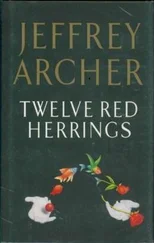Alan Bradley - A Red Herring Without Mustard - A Flavia de Luce Novel
Здесь есть возможность читать онлайн «Alan Bradley - A Red Herring Without Mustard - A Flavia de Luce Novel» весь текст электронной книги совершенно бесплатно (целиком полную версию без сокращений). В некоторых случаях можно слушать аудио, скачать через торрент в формате fb2 и присутствует краткое содержание. Жанр: Старинная литература, на русском языке. Описание произведения, (предисловие) а так же отзывы посетителей доступны на портале библиотеки ЛибКат.
- Название:A Red Herring Without Mustard: A Flavia de Luce Novel
- Автор:
- Жанр:
- Год:неизвестен
- ISBN:нет данных
- Рейтинг книги:4 / 5. Голосов: 1
-
Избранное:Добавить в избранное
- Отзывы:
-
Ваша оценка:
- 80
- 1
- 2
- 3
- 4
- 5
A Red Herring Without Mustard: A Flavia de Luce Novel: краткое содержание, описание и аннотация
Предлагаем к чтению аннотацию, описание, краткое содержание или предисловие (зависит от того, что написал сам автор книги «A Red Herring Without Mustard: A Flavia de Luce Novel»). Если вы не нашли необходимую информацию о книге — напишите в комментариях, мы постараемся отыскать её.
A Red Herring Without Mustard: A Flavia de Luce Novel — читать онлайн бесплатно полную книгу (весь текст) целиком
Ниже представлен текст книги, разбитый по страницам. Система сохранения места последней прочитанной страницы, позволяет с удобством читать онлайн бесплатно книгу «A Red Herring Without Mustard: A Flavia de Luce Novel», без необходимости каждый раз заново искать на чём Вы остановились. Поставьте закладку, и сможете в любой момент перейти на страницу, на которой закончили чтение.
Интервал:
Закладка:
As I talked, I watched Father’s face for any sign of balking. Hadn’t he, after all, been the one who had driven Johnny Faa and his wife from the Buckshaw estate? Had he forgotten the incident? He was almost certainly not aware that his actions had caused the Gypsy’s husband to fall dead in the road, and I wasn’t about to tell him.
“I thought of the vicar’s sermon, the one about Christian charity—”
“Yes, yes, Flavia,” Father said. “Most commendable.”
“I told her she could camp in the Palings, but only for one night. I knew that you’d—”
“Thank you, Flavia, that’s quite enough.”
“—approve.”
Poor Father: outflanked, outgunned, and outwitted. I almost felt sorry for him.
He crooked a forefinger and touched the angled joint to each side of his clipped mustache in turn: right and then left—a kind of suppressed, nervous preening that had probably been practiced by military officers since time immemorial. I’d be willing to bet that if Julius Caesar had a mustache he knuckled it in precisely the same way.
“Inspector Hewitt would like a word with you. Because it concerns confidential information about individuals with whom I am not acquainted, I shall leave you alone.”
With a nod to the Inspector, Father left the room. I heard the door of his study open, and then close, as he sought refuge among his postage stamps.
“Now then,” the Inspector said, flipping open his notebook and unscrewing the cap of his Biro. “From the beginning.”
“I couldn’t sleep, you see,” I began.
“Not that beginning,” Inspector Hewitt said without looking up. “Tell me about the church fête.”
“I’d gone into the Gypsy’s tent to have my fortune told.”
“And did you?”
“No,” I lied.
The last thing on earth I wanted to share with the Inspector was the woman on the mountain—the woman who wanted to come home from the cold. Nor did I care to tell him about the woman that I was in the process of becoming.
“I knocked her candle over, and before I knew it, I … I …”
Much to my surprise, my lower lip was trembling at the recollection.
“Yes, we’ve heard about that. The vicar was able to provide us with a very good account, as was Dr. Darby.”
I gulped, wondering if anyone had reported how I’d hidden behind a pitch as the Gypsy’s tent burned to ashes.
“Poor girl,” he said tenderly. “You’ve had quite a series of shocks, haven’t you?”
I nodded.
“If I’d had any idea of what you’d already been through, I’d have taken you to the hospital directly.”
“It’s all right,” I said gamely. “I’ll be all right.”
“Will you?” the Inspector asked.
“No,” I said, struggling with tears.
And suddenly it all came pouring out: From the fête to the Palings, not forgetting the seething Mrs. Bull; from my frankly fabricated tale of awakening in the night to fret about the Gypsy woman’s welfare to my discovery of her lying in a pool of her own blood in the caravan, I left out not a single detail.
Except Brookie Harewood, of course.
I was saving him for myself.
It was a magnificent performance, if I do say so. As I had been forced to learn at a very young age, there’s no better way to mask a lie—or at least a glaring omission—than to wrap it in an emotional outpouring of truth.
During it all, Inspector Hewitt’s Biro fairly flew over the pages, getting every scrap of it down for the record. He must have studied one of the shorthand methods , I thought idly as he scribbled. Later, he would expand these notes into a longer, neater, more legible form.
Perhaps he would dictate them to his wife, Antigone. I had met her not long before at a puppet show in the parish hall. Would she remember me?
In my mind I could see her seated at a typewriter at the kitchen table in their tastefully decorated cottage, her back ramrod straight in a position of perfect posture, her fingers hovering eagerly over the keys. She would be wearing hooped earrings, and a silk blouse of oyster gray.
“Flavia de Luce?” she would be saying, her large, dark eyes looking up at her husband. “Why, isn’t she that charming girl I met at St. Tancred’s, dear?”
Inspector Hewitt’s eyes would crinkle at the corners.
“One and the same, my love,” he would tell her, shaking his head at the memory of me. “One and the same.”
We had reached the end of my statement, the point at which the Inspector himself had arrived upon the scene in the Palings.
“That will do for now,” he said, flipping closed his notebook and shoving it into the inside pocket of his jacket. “I’ve asked Sergeant Graves to come round later to take your fingerprints. Quite routine, of course.”
I wrinkled my brow, but secretly I couldn’t have been more delighted. The dimpled detective sergeant with his winks and grins had come to be one of my favorites among the Hinley Constabulary.
“I expect they’ll be all over everything,” I said helpfully. “Mine and Dr. Darby’s.”
“And those of the Gypsy woman’s attacker,” he might have added, but he did not. Rather, he stood up and stuck his hand out to be shaken, as formally as if he were being received at a royal garden party.
“Thank you, Flavia,” he said. “You’ve been of great assistance … as always.”
As always? Was the Inspector twitting me?
But no—his handshake was firm and he looked me straight in the eye.
I’m afraid I smirked.
 SEVEN
SEVEN 
“DOGGER!” I SAID. “THEY’RE coming to take my fingerprints!”
Dogger looked up from the vast array of silverware he was polishing on the kitchen table. For just a moment his face was a complete blank, and then he said, “I trust they will be returned to you in good order.”
I blinked. Was Dogger making a joke? I hoped desperately that he was.
Dogger had suffered the most awful privations in the Far East during the war. His mind now seemed sometimes to consist of no more than a crazy tangle of broken suspension bridges joining the past with the present. If he had ever made a joke before, I had never heard of it. This, then, could be a momentous occasion.
“Oh! Ha ha ha.” I laughed too loudly. “That’s very good, Dogger. Returned to me in good order … I must remember to tell that one to Mrs. Mullet.”
I had no intention whatever of sharing this precious moment with our cook, but sometimes flattery does not know when to stop.
Dogger formed a faint smile as he returned a fish fork to the cutlery chest and selected another. The de Luce silverware was kept in a dark folding cabinet which, when opened, presented a remarkable array of fish forks, toddy ladles, mote spoons, marrow scoops, lobster picks, sugar nips, grape shears, and pudding trowels, all arranged in steps, like so many silvery salmon leaping up the stony staircase of a whisky-colored stream somewhere in Scotland.
Dogger had lugged this heavy box to the kitchen table for the ritual cleaning of the cutlery, a seemingly endless task that occupied a great deal of his time, and one that I never tired of watching.
Mrs. Mullet loved to tell about how, as a child, I had been found on top of the table playing with the dolls I had contrived by clothing a family of sterling silver forks in folded napkins. Their identical faces—long noses and round cheeks—were just barely suggested by the engraved D L on the top of each handle, and required a great leap of the imagination to make them out at all.
“The Mumpeters,” I had called them: Mother Mumpeter, Father Mumpeter, and the three little Mumpeter girls, all of whom—even though they were burdened with three or four legs each—I had made to walk and dance and sing gaily upon the tabletop.
Читать дальшеИнтервал:
Закладка:
Похожие книги на «A Red Herring Without Mustard: A Flavia de Luce Novel»
Представляем Вашему вниманию похожие книги на «A Red Herring Without Mustard: A Flavia de Luce Novel» списком для выбора. Мы отобрали схожую по названию и смыслу литературу в надежде предоставить читателям больше вариантов отыскать новые, интересные, ещё непрочитанные произведения.
Обсуждение, отзывы о книге «A Red Herring Without Mustard: A Flavia de Luce Novel» и просто собственные мнения читателей. Оставьте ваши комментарии, напишите, что Вы думаете о произведении, его смысле или главных героях. Укажите что конкретно понравилось, а что нет, и почему Вы так считаете.












